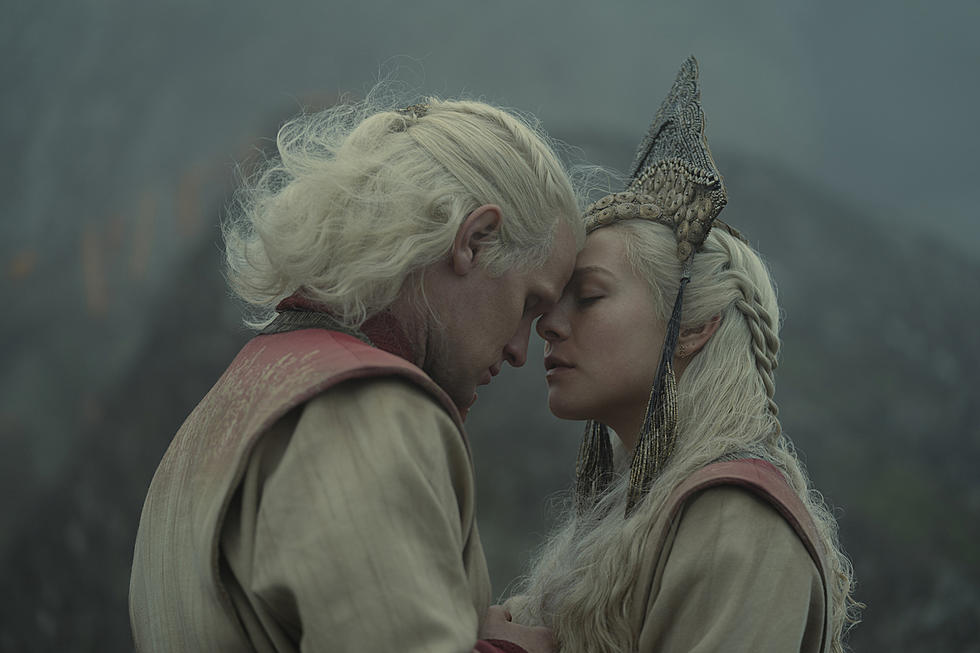House Of The Dragon Review: Season 1, Episode 7: ‘Driftmark’
And you thought your most recent family reunion was terrifying… check episode seven of House Of The Dragon.
Anywhere, funerals are rarely joyful affairs.
But this week’s “House of the Dragon” served as a reminder as the deceased’s body fell into the water and her brother wandered in after it; as one cousin became inappropriately inebriated; as another stole a dragon and then engaged in combat with his half-nephews, breaking one of their noses and receiving a cut to the eye in return; as the inebriated cousin claimed his half-nephews were not his, breaking the seal on a dark (if open) family secret; as the sister-in-law took a dagger to her stepdaughter, who had just returned from sleeping with her uncle; as the parents came downstairs to find a man they assumed was their son burning in their fireplace — that things are a little extra in Westeros.
Read Also: House Of The Dragon Review: Season 1, Episode 5 “We Light The Way”
We witnessed the removal of numerous story shoes along the route. For starters, Rhaenyra and Daemon ultimately got together; their kiss on the sand and the fact that Daemon has two daughters both imply that his performance troubles have, at least temporarily, passed.
Even more remarkable: They subsequently pulled off a charming destination wedding with no killings. (However, since their blood is largely the same, I’m not sure why they bothered to ceremonially mix it.)
Otto is back by the king and queen’s side and ready to help shape Aegon the Ridiculous, the potential heir. By the way, it was Aegon who eventually spoke the unspoken truth about the Strong bastardhood of Rhaenyra’s sons. He informed Viserys, “Everyone is aware.” “Just look at them.”
Keeping The Family
However, the monarch did not abandon his daughter despite hearing it said explicitly by his own son.
When it works, the minor marvel of “House of the Dragon” is how the recognised family dynamics can make all of the objectively absurd happenings feel nearly relatable.
On Sunday, we finally got confirmation that Viserys’s is a kind of voluntary denial, born not of obliviousness but of a stubborn desire to hold the family together, even if the effort has been doomed to failure from the beginning of this story.
As Viserys fades, his desperation to keep his family somewhat intact is both pitiable — any semblance of unity will surely die with him — and poignant, a kind of raging against the dying of the light for a ruler who senses that his efforts will be futile and his legacy a wash, at best.

